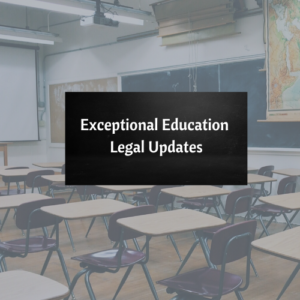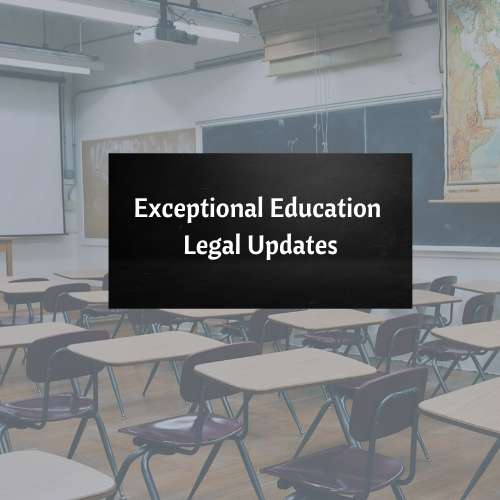On March 21, 2023, the Supreme Court made it easier for disabled students to pursue disability discrim ination claims in court under the Americans with Disabilities Act (“ADA”) without first having to exhaust administrative procedures under the Individuals with Disabilities Education Act (“IDEA”). Perez v. Sturgis Public Schools, 143 S. Ct. 859 (2023). The ruling is significant because the Supreme Court rejected the school district’s argument that IDEA’s administrative procedural prerequisite to filing a lawsuit in court was also applicable to the ADA.
ination claims in court under the Americans with Disabilities Act (“ADA”) without first having to exhaust administrative procedures under the Individuals with Disabilities Education Act (“IDEA”). Perez v. Sturgis Public Schools, 143 S. Ct. 859 (2023). The ruling is significant because the Supreme Court rejected the school district’s argument that IDEA’s administrative procedural prerequisite to filing a lawsuit in court was also applicable to the ADA.
Miguel Perez was a former deaf student at Sturgis Public Schools who had an accommodation plan in place in accordance with IDEA. The plan called for an aide who knew American Sign Language (“ASL”) to help Perez communicate with his teachers throughout the school day. However, it was not until Perez neared graduation that his family learned that the aides assigned to him by the school district were not proficient in ASL, could not effectively communicate with Perez, or were absent for hours at a time during the course of the school day. As a result of the school district’s failure to follow Perez’s IDEA plan and because of the school district’s misrepresentations about his educational progress, Perez never learned the curriculum in a manner necessary to graduate.
Perez and his family filed an administrative complaint with the Michigan Department of Education. As a result of the administrative complaint, the school district agreed to pay for Perez to attend the Michigan School for the Deaf so that he could get compensatory schooling or learn what he should have learned while attending school within the school district. Although Perez and his parents agreed to this remedy, they also sued the school district in federal court under the ADA for the discriminatory way the school district educated Perez. Perez and his family sought compensatory damages for past harm – something not available to the student under IDEA.
The Supreme Court held that because the ADA’s potential remedy of compensatory damages was not available under IDEA, Perez did not have to exhaust IDEA’s administrative procedural requirement before he filed a lawsuit under the ADA.
MY CHILD HAS A PLAN UNDER IDEA. THE SCHOOL DISTRICT HAS NOT FOLLOWED THE PLAN. DO I STILL HAVE TO EXHAUST ADMINISTRATIVE PROCEDURES BEFORE I CAN SUE IN COURT?
It depends. The exhaustion requirement still applies to IDEA and other federal laws to the extent the other federal laws provide the same remedies as IDEA. For example, a student seeking equitable relief for a free appropriate public education (FAPE), still must exhaust IDEA’s administrative prerequisites or conditions precedent. Equitable relief can include things like compensatory education and tuition reimbursement.
However, the ADA potentially provides for compensatory damages which is a remedy the student cannot get under IDEA. This is why in Perez v. Sturgis Public Schools, the Supreme Court held that Perez did not have to exhaust administrative procedures under IDEA before he could sue the school district in court under the ADA.
WHAT IF THE SCHOOL DISTRICT DOES NOT FOLLOW MY CHILD’S IDEA PLAN?
The system is set up so that a parent can work with the school district to make sure the plan is working and being followed. The parent also has the right to have an advocate assist them. The advocate can be any person including, but not limited to, a friend, teacher, doctor, or lawyer.
HOW DO I KNOW IF I HAVE THE RIGHT TO GO TO COURT OR IF I NEED TO SEEK AN ADMINISTRATIVE HEARING?
If you need legal advice about whether you are able to go to court or if you need to exhaust administrative procedures, you should set up a consultation with a qualified education attorney in your state like the lawyers at Sass Law Firm.

